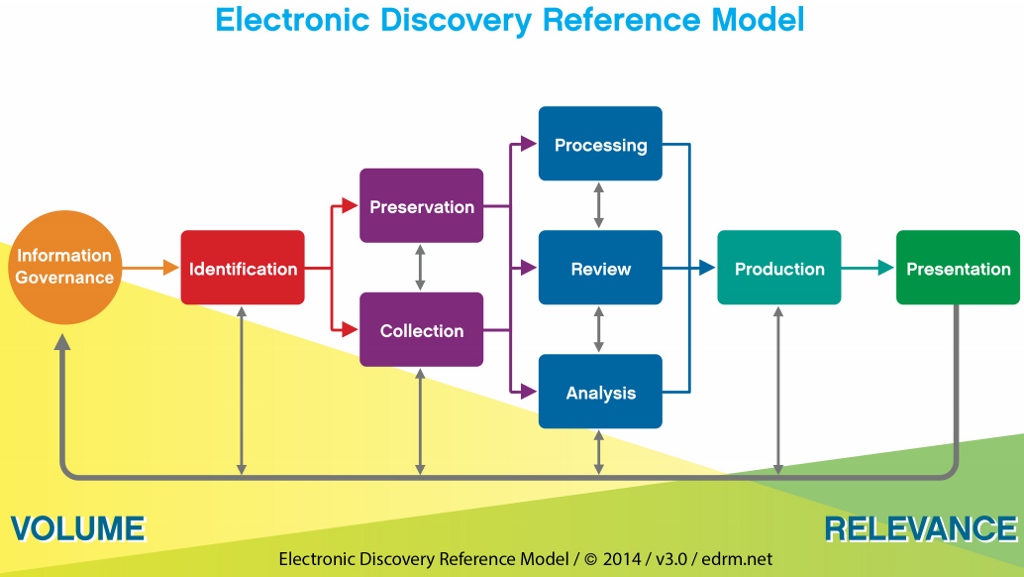Governor Snyder recently announced that he will be releasing emails pertaining to the Flint water crisis (“Crisis”) dating back to 2014. This release is said to include his personal and official email accounts in the hope of providing transparency into his conduct and knowledge in relation to the Crisis. When considering these emails, the public and the Snyder Administration(“Administration”) must consider the methodology utilized in preserving, searching, extracting and producing the data to determine the credibility and defensibility of the content within these emails.
The Department of Justice (“DOJ”), Sedona Conference (“Sedona”), Michigan Court Rules (“MCR”) and The Federal Rules of Civil Procedure (“FRCP”) have collectively created a set of industry standards that must be followed or are mandatory depending upon the context of the underlying dispute. Stated otherwise, if a suit has been filed and discovery has commenced parties to the case are bound and must adhere to the standards I will be discussing. However, Governor Snyder, although being investigated by the Michigan Attorney General, Bill Scheutte, is releasing these emails voluntarily and does not necessarily have to comply with the aforementioned standards yet.
Nonetheless, the duty to preserve electronic data (and non-electronic data) arises prior to an actual suit being commenced – any entity or individual has a duty to preserve the data when it can be reasonably anticipated that a legal suit may ensue. What this means for Governor Snyder and his Administration is that their duty to preserve and prevent any deletion or spoliation of emails/data most likely arose as soon as they realized that a possibility of water contamination existed. This standard has also been adopted and prescribed by the State of Michigan Records Management Services. Therefore, the Administration should have initiated a “Legal Hold” within the department with all custodians (relevant employees) to prevent any data from destruction which may occur due to standard protocols within their internal server or a regular cleaning of inbox by staff members. Lastly, as previously mentioned, it may not be sufficient just to produce emails from Governor Snyder’s inbox while omitting communication that may have been directed to other individuals within the Administration. Accordingly, for the public to fully understand and for the Administration to rebuild the trust of the people, it is vital that their attempts to be transparent are not disingenuous and include a comprehensive production of all pertinent emails/data.
The metadata (data within data) of the emails Governor Snyder is introducing maybe of higher importance than the substance of the emails. The reason being metadata can help validate the background of each email including but not limited to the creation; date of receipt; individual sending the email; individuals copied or blind copied; and whether the file is an original or has been modified or edited to further substantiate the credibility of the substance within the body of an email. Depending upon the software or server used by the Administration, the proper method of preserving such emails prior to review and production should have included either a forensic image of the relevant staff and Governor Snyder’s computer or extracting what is called a PST file from Outlook or other software’s who support this format. Although it can be accomplished without misfeasance, to avoid controversy, the Administration should have acquired a third-party forensic expert to preserve and extract the relevant data prior to review and releasing these emails. Again, this speaks to the competency and credibility of Snyder’s staff to ensure that the public understand this is an honest act of transparency and not a politically motivated action conducted fraudulently to manipulate public opinion. Unfortunately, if the Administration does decide not to produce or discuss the metadata they may rely upon policy adopted by the state administrative board (prior to Governor Snyder being elected) that allows for destruction of metadata – with a possible exception of when a notice is received regarding the possibility of litigation, audit or investigation. See http://www.michigan.gov/documents/dmb/rms_gs8_metadata_333080_7.pdf ; http://www.michigan.gov/documents/dmb/rms_metadata_333081_7.pdf .
We must also consider the methodology utilized in searching for these “Flint Water Crisis” related emails. The Administration needs to ensure the public that a comprehensive search was conducted and also describe the tools, methods and individuals involved in conducting this search. For example, if an intern was tasked to conduct a search in Governor Snyder’s email with terms such as “Flint”, “Water”, “Water Crisis” dating back to 2014, we are most likely missing the bulk of relevant data. Although not perfect, nonetheless, eDiscovery tools and technology has provided us with better solutions to the challenges of conducting searches to extract relevant data.
I have briefly reviewed the policies for record retention as provided by the Michigan Department of Technology and Management and Budget (“DTMB”). Their email retention guidance does provide that, “Note: agencies may have policies that prohibit the use of personal e-mail.” See http://www.michigan.gov/documents/E-Mail_Retention_Guidelines_126565_7.pdf. I am not certain and was unable to locate the specific policy that pertains to the Governor and his staff, which I am hoping will be addressed by the Administration soon. I was also unable to locate any discussion regarding tools and methodology adopted in searching and extracting data. I would like to conclude by warning those reading this piece and developing their thoughts on what has or will be transpiring, majority of what I have stated pertains to litigation in our courts and not to a governor voluntarily releasing their emails. Also, the Administration may have followed the rules and procedure discussed above, so please refrain from considering this article as conclusive evidence or binding authority regarding the Administrations conduct.
*please excuse any grammatical errors within due to lack of time.

Reblogged this on Michigan e-Discovery.
LikeLike